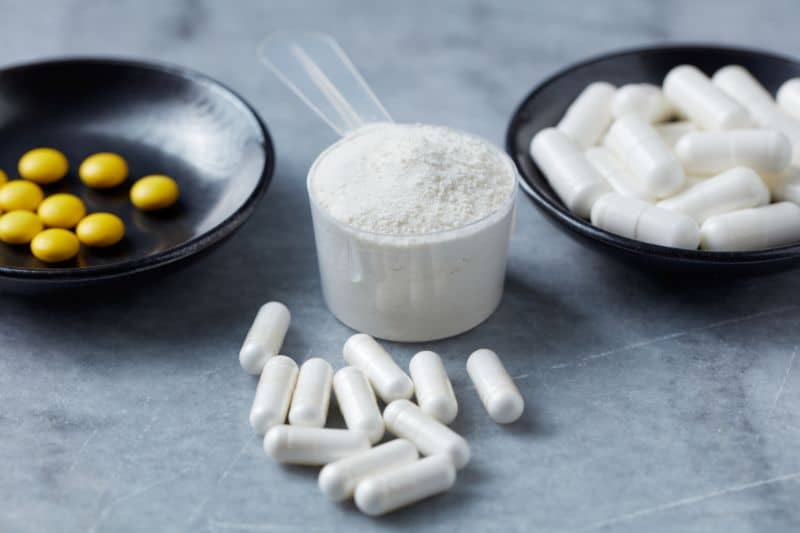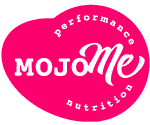Incorporating collagen tablets into one’s dietary regimen can be a valuable addition for individuals seeking a healthier lifestyle. It may seem that collagen is a supplement that has only recently become popular, but did you know that this natural supplement has formed part of beauty regimens since the 90s? You may be wondering what the fuss surrounding collagen tablets and powders is about, and we’re here to simplify it for you.
Collagen, a structural protein, is inherently present not only in humans but also in the bodies of all animal species. It is referred to as the “master protein” as it is the building block for many body systems. While we already have collagen in our bodies, the body’s natural collagen production decreases after age 25. Lifestyle choices such as consuming excessive amounts of sugar, smoking, and even unprotected sun exposure can break down and degrade our natural collagen.
Collagen powder is a dietary supplement derived from animal tissue, such as bovine or marine tissue. Unfortunately, this means that most collagen supplements are not vegan-friendly. Collagen extracted from tissue is transformed into gelatin, processed into a powdered form, and utilised as a filling for capsules, resulting in the formation of tablets.
As collagen is an animal product, always purchase your collagen tablets from ethical and cruelty-free brands like MojoMe.

What Does Collagen Help With?
Collagen is vital in supporting various systems in the body. Consuming collagen daily can help support and improve the following:
- Replace dead skin cells
- Create a protective cover around the organs
- Improving skin elasticity, enhances skin resistance and firmness
- Improving blood clotting
- Improving bone and joint flexibility
- Strengthening muscles
- Diminish the visibility of fine lines and age-related wrinkles
Scientists have identified 28 types of collagen. The types differ depending on how the molecule is structured and where the collagen is used in the body. Predominantly, five main types of collagen are found in the body, and these include:
- Type I: About 90% of the body’s collagen is type I. It is densely packed and used to build bones, tendons, ligaments, and skin.
- Type II: This collagen is found in elastic cartilage and thus helps improve joint movement.
- Type III: This collagen is found in organs, muscles and arteries.
- Type IV: This collagen is found in the layers of our skin and supports the elasticity and firmness of the skin.
- Type V: This collagen is essential for the body’s natural protective barriers, such as the eye cornea, some layers of skin, hair, and placental tissue.
How Much Collagen Should You Be Taking?
Research and science surrounding collagen supplements are still emerging. While collagen tablets and powders have been on the market for several decades, there still needs to be a uniform recommended daily dosage or limit to the amount of collagen one can take in through supplements.
There is also no way to measure how much collagen is in the body accurately. Studies and analysis have shown that collagen makes up 80% of the body’s proteins. Still, there is no way to measure collagen levels within the body, especially as they decline with age. Different collagen brands have different daily recommended dosages, ranging from as little as a gram to 20 grams per day.
It is essential to note that superior-quality collagen products, like the collagen tablets and powders available on our MojoMe website, will have a lower recommended daily dosage. Conversely, the poorer the quality of tablets or powders, the higher the daily recommended dosage. So, while there is no standardised recommended daily dosage for collagen, research is being conducted to determine how to measure its prevalence in our bodies and how much we need to support them.
However, some studies have been conducted to determine the efficacy of collagen in supporting various bodily functions. These include:
- Skin: Research shows that a range of 2.5-10 grams per day is beneficial for skin support.
- Logic: Studies show that consuming 15-20 grams per day can support muscle mass, strength and post-exercise muscle soreness.
Is There A Specific Time Of Day You Should Be Taking Collagen Tablets?
There is much debate surrounding how and when collagen tablets should be taken. Some claim they feel the benefits of collagen more when taking it at night, while others prefer to have their collagen tablets first thing in the morning.
Morning: Some argue that the morning is the best time to take collagen supplements because you digest the supplement on an empty stomach. However, according to experts, this is not the problem. Most of the breakdown of protein takes place in the small intestine, so there is little difference between a full, half-filled, or empty stomach.
Collagen peptides are peptides. This means they are already delivered to the gastrointestinal tract as pure proteins in a more digestible form. The typical protein digestion step, which requires gastric acid and enzymes with supplementary proteases in the small intestine, is omitted here.
Noon: Others prefer a midday collagen break as a meal or snack ingredient. The extent to which a collagen supplement provides satiety depends on the accompanying food or beverage consumed with it. For example, if you take your collagen tablets with water, they will do nothing to fill you. But if you take your collagen tablets with a smoothie, the snack will adequately fill you.
Evening: Some argue that collagen works better at night because the body naturally recovers during sleep. By synchronising with this recovery cycle, the amino acids are better utilised. However, this is hypothetical.
Which Nutrients Help Collagen Absorption?
A well-balanced diet can encompass a variety of foods that supply essential components for collagen synthesis. These nutrients consist of the amino acids proline and glycine, as well as vitamin C, zinc, and copper. The following foods are rich sources of these vital amino acids, vitamins, and minerals:
- Vitamin C: This essential nutrient can be obtained from an array of sources such as oranges, strawberries, peppers, broccoli, brussels sprouts, and potatoes.
- Proline: This amino acid can be sourced from various foods, including mushrooms, cabbage, asparagus, peanuts, wheat, fish, egg whites, and meat.
- Glycine: This particular amino acid is present in an assortment of foods such as red meat, turkey, chicken, pork skin, peanuts, and granola.
- Copper: This vital mineral can be acquired from a diverse range of sources, including liver, lobster, oysters, shiitake mushrooms, nuts, green leafy vegetables, tofu, and dark chocolate.
- Zinc: This essential mineral is present in various foods such as red meat, oysters, poultry, pork, beans, chickpeas, nuts, broccoli, green leafy vegetables, whole grains, and dairy products.
Do Collagen Tablets Work?
The effectiveness of collagen as a means of promoting skin health, reducing the visibility of wrinkles, and preventing bone deterioration remains a topic of much discussion in the scientific community. While some studies suggest that collagen supplementation may benefit skin elasticity, hydration, and wrinkle reduction, other research indicates that the body does not absorb collagen in its intact form, thus rendering its potential effectiveness debatable.
Additionally, the quality and sourcing of collagen products can impact their effectiveness, with superior-quality collagen products containing bioactive peptides that can enhance skin health and bone metabolism.
However, the studies that have been conducted found the following:
The human body does not absorb collagen in its complete form, so the notion that supplementation can directly promote bone growth and maintain healthy skin or hair is inaccurate. Upon ingestion, the body breaks down collagen within the digestive system into amino acids. These amino acids are then utilised by the body as required, but their presence does not guarantee an immediate improvement in skin radiance. On the plus side, taking collagen supplements can boost your body’s production of more collagen.
One study found that collagen benefits bones and joints by supporting the body’s natural production of collagen by providing a bioavailable source of amino acids. And the Journal of Arthritis has found that some evidence suggests that oral collagen may be helpful for osteoarthritis symptoms.
As you age, the amount of natural collagen in your body decreases, which is why taking supplements sounds appealing. Scientific studies have demonstrated that collagen plays a pivotal role in fortifying the proteins responsible for hair growth. This, in turn, helps prevent hair loss, stimulating hair growth and diminishing the visibility of grey hair by reinforcing the structural integrity of hair follicles, which are responsible for pigment production. Additionally, collagen supplements have proven to be very effective in treating dry, brittle hair by supporting healthy moisture retention.
Benefits Of Collagen Tablets
Drinking collagen has many health benefits. It positively affects your skin, bones, muscles and teeth. Some of its benefits include:
- Skin regeneration: Collagen is an anti-ageing agent that improves skin elasticity, moisture retention, and wound healing. However, according to research, you will need about 12 weeks of regular collagen supplements to see noticeable changes.
- Strengthening bones: Collagen strengthens and improves bone function by increasing bone mass. It also relieves joint pain caused by loss of bone mass.
- Muscle regeneration: Collagen is an essential component of skeletal muscle. According to a randomised study, men who took collagen supplements and exercised showed increased muscle mass compared to other participants.
- Improving heart health: Collagen promotes the growth of blood vessels. As a result, researchers have also found that it plays a role in preventing coronary heart disease (atherosclerosis).
- Hair and nail regeneration: Collagen promotes the rapid growth of healthy hair and nails.
Do Collagen Tablets Cause Any Side-Effects?
Taking collagen has its benefits, but some people may experience side effects due to many factors. Some factors that can cause you to develop side effects include collagen intolerance and inappropriate collagen dosage. For example, it is crucial to meticulously regulate collagen consumption, as excessive intake frequently results in mild adverse reactions.
These side effects can present as clinical symptoms best defined by a medical professional. However, these symptoms differ from person to person and can affect:
- Skin: Clinical symptoms include rash, acne or general dermatitis. Contributing factors may include sensitivity to collagen, the presence of chemical additives in collagen supplements, or exposure to contaminated natural collagen sources.
- Liver: Cirrhosis can arise from an excessive accumulation of type I collagen in liver tissue. Consuming additional collagen can worsen your liver, as uncontrolled liver fibrosis progressively culminates in liver cancer.
- Kidneys: Collagen intake may contribute to the formation of kidney stones. Hydroxyproline, a prominent amino acid in collagen, is typically excreted by the kidneys as oxalate.
- Stomach: You may also experience digestive problems as a side effect of taking collagen. Potential symptoms you may experience include diarrhoea, constipation, heartburn, and feeling full and reduced appetite. Chemical additives, especially in supplements, contribute significantly to these reactions.
- Heart: Collagen can cause hypercalcemia. Hypercalcemia is the accumulation of too much calcium. Excess calcium from collagen supplements often leads to abnormal heart rhythms.
Final Thoughts
Although research on the benefits of collagen powder is limited, studies have shown that including collagen powder in your daily diet can improve bone density. Daily supplementation helps to minimise the effects of ageing on bones, as bones become brittle with age. Eating collagen powder daily can also improve the elasticity of our joints, helping us move more easily as we age. Taking collagen tablets daily can also improve skin elasticity and water absorption, thus increasing hydration.
More About MojoMe
MojoMe offers clean, ethically-sourced and cruelty-free supplements to improve your health and quality of life. We offer loyal customers a MeBucks program. This program earns you points for every Rand you spend with MojoMe. You earn one MeBuck for each one Rand spent. When you redeem your points for exclusive discounts, 40 MeBucks equate to one Rand. Earn as you shop and improve your health today!


